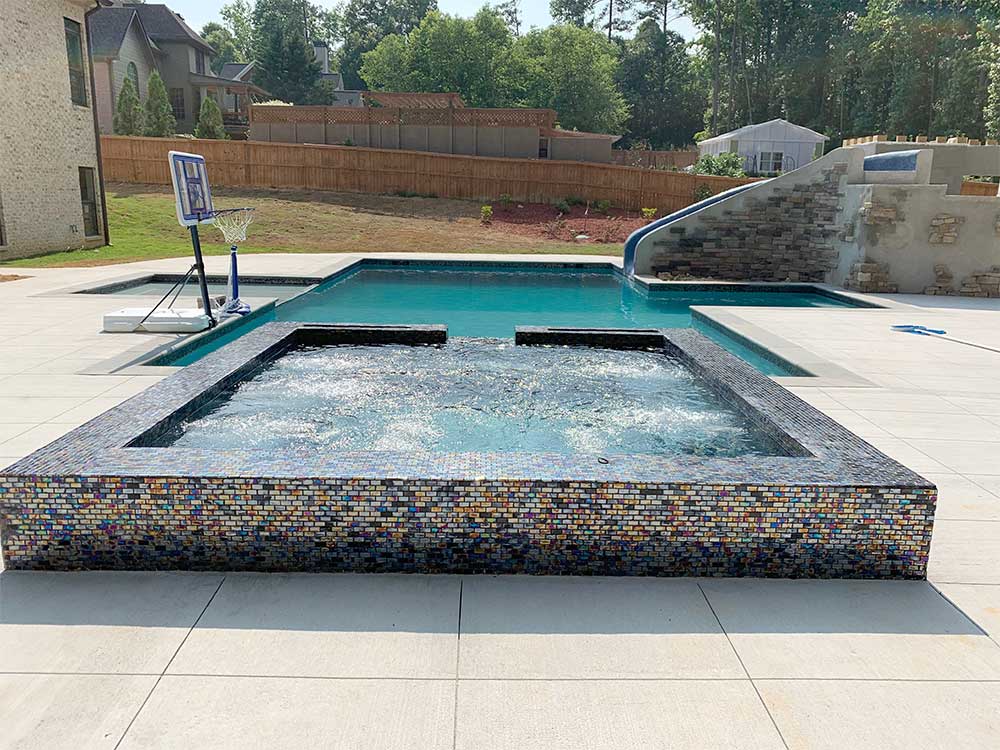How Do Saltwater and Chlorine Pools Differ?

Have you ever wondered what makes a chlorine pool different than a saltwater variety? You probably are aware that chlorine has been famous for disinfecting pools for decades, so it is undoubtedly a strong and powerful chemical.
People who didn’t like chlorinated pools it demanded alternatives. Saltwater pools offered a solution.
The popularity of saltwater pools is rising rapidly in backyards everywhere as savvy solutions for swimmers who want to limit exposure to harsh chemicals.
Saltwater Pools Require Less Harsh Chemicals for Maintenance
Saltwater pools are advantageous over chlorine ones. Since the water already contains natural chlorine, pool cleaners don’t have to add nearly as many chemicals to the water when disinfecting them. A natural process called electrolysis turns the water’s salt into chlorine which cleans the pool.
That means swimmers get a break from the harsh chemicals. There’s still chlorine in the water, but it’s in a natural form that’s less harsh than chemical versions.
For anyone who loves to swim but doesn’t enjoy the stinging in their eyes or the way their skin feels, these pools provide sweet relief.
What Are the Cost Differences?
Deciding which type of pool is better on a cost basis is debatable. For the first few years after purchase, saltwater pools tend to cost less because they require fewer chemicals to clean. However, maintenance costs for the pool itself begin to rise, offsetting the gains.
It’s also worth noting that you’ll need special equipment to maintain a saltwater pool. Saltwater pools require a salt-chlorine generator to turn the salt into chlorine.
Most people who swim in one of these pools says it’s a different experience than swimming in a traditional chlorine pool. Their anecdotes say that that the water feels less irritating and it feels smoother on their skin.
Most people also enjoy the fact these pools don’t give off that pungent chlorine smell, which can be irritating.
Now that you understand the benefits of each type of pool consider the drawbacks.
Disadvantages of Saltwater Pools
Consider a few of the disadvantages of saltwater pools.
• They’re more expensive to install. Upfront costs will be higher.
• They use more electricity each month, which raises energy costs.
• Pool owners may need to call professionals for repairs, which can get expensive.
• Saltwater may damage features in the pool and can be harmful to plants and soil.
Cons of Chlorine Pools
There are some considerable drawbacks to chlorine pools.
• They have a higher concentration of chlorine than their rival.
• Not only that, someone has to add the chlorine too, causing additional labor requirements.
• Your skin can dry out or get itchy after swimming, and your eyes could get irritated.
• Chlorine has to be handled and stored with care.
• Maintenance is more expensive and needed more often than a saltwater pool.
Pools are a significant investment. That’s why people research them so thoroughly before installation. Both types of pools are lovely additions to any home.
It’s worth considering the benefits and disadvantages before deciding what matters most before committing to a new pool. If you need help, contact our pool builder experts to help you decide on what is the best investment for your lifestyle.




